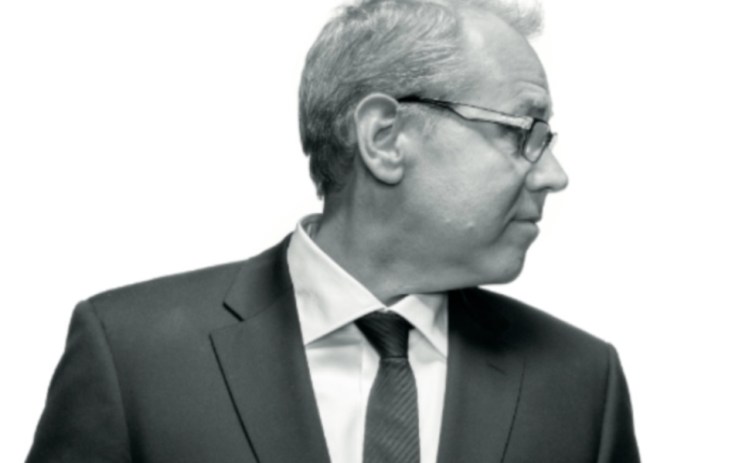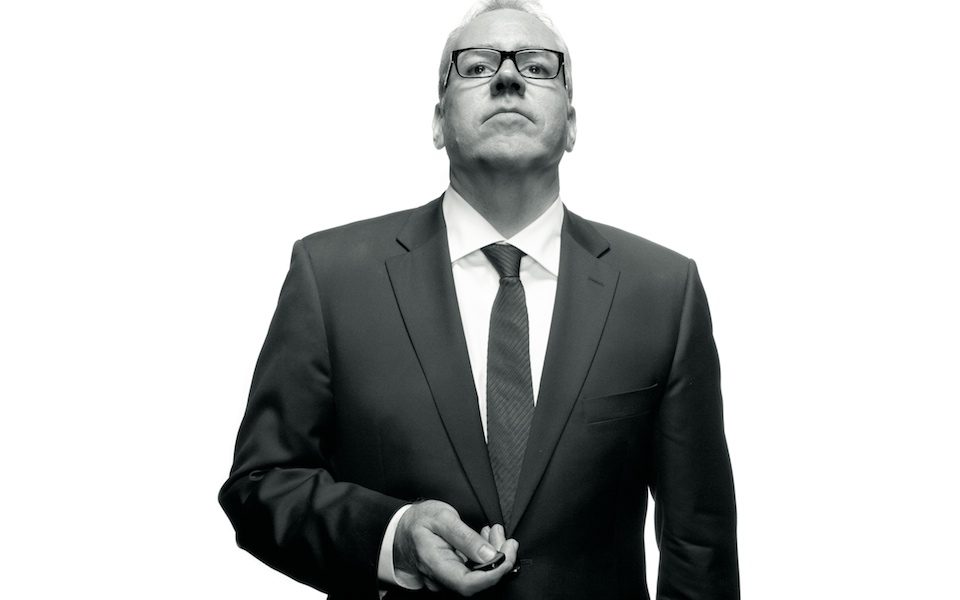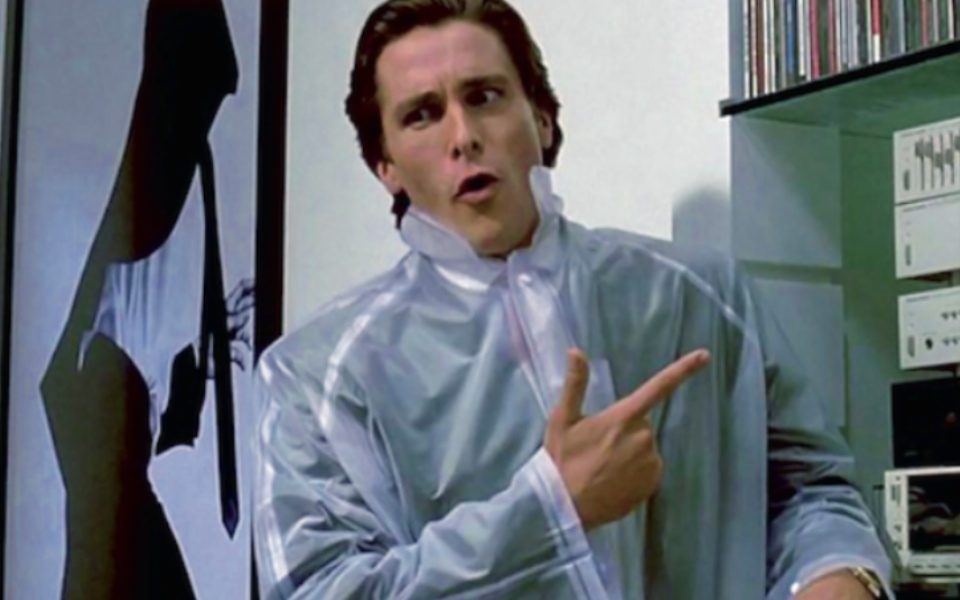Bret Easton Ellis interview: an audience with the most hated writer in America

Bret Easton Ellis is concerned about the noise. We’re sitting in the lounge of a fancy hotel, and he’s worried my tape recorder won’t pick him up. “We can find another if you’d like. Tell me what you want to do.” It’s hard to reconcile his graciousness with his reputation as the one-time enfant terrible of American literature, or his current status as the boogeyman of the US broadsheets.
Our interview comes at the midpoint of an international tour, one that he forlornly tells me “will never stop”; after the UK, he will shuffle off to Germany, the Netherlands, and then on to God knows where. The tour’s purpose is to sell his new book, White, a meandering collection of essays about our current cultural moment.
The content of White will not be a surprise to anyone who has followed Ellis on Twitter over the past couple of years, where he has staked out a position on the frontline of a new culture war. White’s targets are typical of a particular corner of the internet populated largely by angry white men: safe-spaces and identity politics; the essential snowflakiness of millennials (who he has labelled ‘Generation Wuss’); feminism and what he sees as the excesses of the #MeToo movement.
It has garnered a good deal of controversy, unsurprisingly, given that even the title is a minor provocation. His promotional tour has also resulted in a few memorable conflagrations, most notably an interview with the New Yorker that went viral, largely because of what was widely thought to be Ellis’ total destruction at the hands of the interviewer (sample headline: “This Bret Easton Ellis interview is brutal”).
It’s a little charitable to call White a collection of essays; in reality, it’s closer to a series of blog posts, or a bunch of angry rants cribbed from the discussion section of a mid-noughties Warhammer messageboard. Over its 250-odd pages, Ellis inveighs against Moonlight, against Madonna, against Michelle Obama and the New York Times; against anything he deems guilty of what he terms “corporate wokeness”.
If the book has a thesis, it’s that we have all become hysterical, and that everyone needs to “pull on their big boy pants, have a stiff drink at the bar,” and calm the fuck down.
Parts of White are very interesting, particularly when he is holding court on movies, about which he is knowledgeable and forthright (he has written three films, The Canyons, The Informers and The Curse of Downers Grove, none of which have been particularly well-received).
Some of his criticism is perfectly legitimate, and even the most fragile snowflake will find something agreeable in his railing against the toothless corporate liberalism of contemporary Hollywood. It is, for instance, deeply dumb and hypocritical that bad Twitter jokes saw Ellis disinvited from a LGBTQ dinner that had Bill Clinton, the man who passed the Defence of Marriage Act, as its keynote speaker.

But at other times White is a troubling book, and at others a boring one. During certain segments, I could understand the monstering it has received in the literary press. For one thing, it feels profoundly under-edited, and there are whole sections that might’ve been scythed through by a more ruthless publishing house. To illustrate: he includes a series of useless anecdotes about hanging out with celebrities, one of which begins, “In the late 1980s, when Tom Cruise and I lived in the same building in downtown New York,” and doesn’t get any more compelling from there.
It all feels a far cry from the Ellis of yore. When he was just 21, still an undergrad at Bennington College, he published Less Than Zero, a semi-autobiographical novel about the aimless, anhedonic lives of a bunch of very rich and very messed up Los Angeles teenagers.
It was a surprise hit, and overnight Ellis became both a literary wunderkind and a generational mouthpiece, enrapturing 80s teenagers with his depiction of Gen-X disaffection. In 1991, at the tender age of 26, he wrote American Psycho, still seen by many as the seminal satire of the vapidity and materialism of Wall Street. But after the millennium his literary output began to stall, and in the past ten years it has dried up entirely – his most recent novel, 2010’s Imperial Bedrooms, received mixed reviews, and Ellis has demurred on the question of whether he will ever again write fiction.
Given all this, I had expected to meet a crabby old man, embittered by the changing generational winds that had seen his too-cool-for-school Gen-X nihilism shunted out of the cultural ascendancy by millennial activism. Plus, I myself am a card-carrying millennial, with two separate food intolerances to prove it.
But in person Ellis is something different – warm, courteous, and often incredibly funny. Curiously for a man who has just written a very shouty book – and somewhat infuriatingly for an interviewer looking for a snappy subhead – he is also coy to the point of diffident, endlessly caveating his opinions with umms, wells and actuallys.
For instance, the backlash to Trump, which he describes in White as “shrill”, “hysterical”, and “knee-jerk, over-emotional lashing out”, is assessed in these terms: “Maybe people are right. Maybe Trump is completely fucking evil.” When I ask him whether a culture of rampant censorship is prohibiting honest political discussion, he simply demurs: “I don’t know. What do you think?”
And on millennials, whose generational pathetitude is the organising principle of his book (and his Twitter account), he is positively affable. “I’m very sympathetic to millennials. How could I not be? I live with one 24/7”, he says (Ellis’ boyfriend, Todd Michael Schultz, is a musician in his early thirties). “People forget that I’m someone who has written very critically of my own generation, of their materialism and their shallowness.”
It strikes me that it might be the corrupting influence of the web that periodically turns this genial, conciliatory man into a vicious cultural warrior
When he does criticise, his criticisms are undergirded by a world-weary conservatism, not the ambient seethe that characterises White. “I do wish they [millennials] weren’t so concerned with… utopias, dare I say. Because you’re bound to be constantly disappointed. My boyfriend is constantly disappointed by things not working out. He wants the world to be a fair place – the world isn’t a fair place! We’re all going to get old, we’re all going to die”.
Perhaps this is all a guise – as many have pointed out, for a book about how we all need to calm down, White is a very angry piece of writing. Insisting over and over that you don’t give a crap about what anyone says – that you are, in fact, laughing – seems like a textbook case of a writer telling on himself, especially given that Ellis is prone to periodic eruptions of rage. “I’ve grown entirely comfortable in being liked and disliked, adored and despised,” he writes in White; to which the obvious response is ‘why write a book about it, then?’
And yet his posturing indifference in print is matched by the nonchalance with which he carries himself in person. I expected him to be embarrassed by that interview in the New Yorker, or angry at being the subject of a well-executed hit piece, but he remains sanguine.
“I knew what was happening two minutes in, maybe I should’ve hung up. But I thought I could win and I decided to fight it. But I started flailing. I think if I sat down with him and we spoke face to face it’d have been a much different situation.”
Does he feel inured to criticism now? “Listen, I’ve been doing this for 35 years. Bad reviews are not new. When Less Than Zero came out, there were op-eds saying that it’s the end of literature when a house like Simon & Schuster publishes this book. And I’ve often said that if there were a Rotten Tomatoes of books, American Psycho would’ve gotten zero per cent. There were no good reviews of that book; I was getting death threats because of it.”
Did that disturb him at the time? “No, because I believed in the book. And whatever was happening in that cultural moment, where it was cancelled [Simon & Schuster dropped the book months before publication, allowing Vintage Books to swoop in], it all just washed over me. I felt numb, like I was floating away from everybody. But I always knew that it would be over eventually, and that the book would be published and understood.”

It strikes me that it might be the corrupting influence of the web that periodically turns this genial, conciliatory man into a vicious cultural warrior. Twitter has a lycanthropic quality: even the sweetest-souled person can develop fangs and a bloodlust when safely ensconced behind a computer screen. I also don’t think it’s coincidental that Ellis admits to often using the website when he’s drunk, given that he keeps finding himself in what are essentially the internet equivalent of bar fights.
This split between the public and the personal, the online and the in-the-flesh, perhaps accounts for the apparent paradox in his relationship with his boyfriend. In White, Schulz is as an attention-seeking hysteric, losing himself entirely in his loathing for Trump.
In person, however, Ellis radiates affection for Schulz, seeming to mention him in every other sentence. Still, Ellis must’ve been secretly pleased by the outcome of the Mueller report, given that Schulz spent a year obsessing over what turned out to be a dud? “I don’t like my boyfriend being sad,” he says, and there’s a slight pause, as a coy smile plays across his face. “Maybe I enjoyed it a little bit. Don’t tell him I said that.”
Ellis’ relationship with Trump is ambiguous. Patrick Bateman, the antihero of American Psycho, is obsessed with him, seeing the then-real estate developer as a perfect capitalist; untethered from ethics, consumed by consumerism. It seems strange that someone who was then so critical of Trump now takes such delight in ridiculing his critics.
Ellis is insistent that he’s not a fan of the President. Indeed, he thinks of himself as entirely apolitical, interested only in aesthetics and not ideology. But no one is beyond politics – especially someone who’s just written a polemic called White – and by situating himself as part of the anti-anti-Trump backlash he is surely picking a side. Is there anything about Trump that he does admire? “Policy-wise, no, but he is a remarkable stand up, and there is something compelling about his stamina and his fearless sense of humour”.
Another annoyingly reasonable answer. His publicist taps her watch, but Ellis tells me that he doesn’t want that to be the last question, so we chat about movies for a few minutes. He tells me about his favourite millennial filmmakers – Ari Aster, Damien Chazelle – as his bemused publicist watches on. It’s a fitting way to end the interview; an unnecessarily personable action from the most hated writer in America.